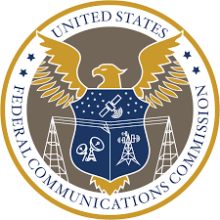
Fast, affordable Internet access for all.

Just before Thanksgiving, the Federal Communications Commission (FCC) Office of Inspector General (OIG) issued a memorandum sounding the alarm that some Internet Service Providers (ISPs) have been fraudulently abusing the Emergency Broadband Benefit (EBB) program.
Under the 2021 Consolidated Appropriations Act, Congress allocated $3.2 billion to fund the EBB program, a $50 per month subsidy for eligible low-income families to pay for home broadband service during the pandemic as millions of students across the country were forced to attend school online. The memo was released just as Congress recently passed the Infrastructure Investment and Jobs Act, which transformed the EBB program into a longer-term $30 per month subsidy renamed the Affordable Connectivity Program (ACP). To fund the latter program, Congress allocated an additional $14.2 billion.
Inflated Enrollment Numbers
EBB beneficiaries are supposed to be limited to low income families, which includes students enrolled in free and reduced-price school lunch or the school breakfast program. However, according to the FCC-OIG alert:
OIG issues this advisory letter to alert providers, consumers and the public to improper and abusive EBB program enrollments made in connection with the USDA National School Lunch Program’s Community Eligibility Provision (CEP). Specifically, EBB providers’ sales agents are enrolling households by falsely claiming a dependent child attends a CEP school during the eligibility verification process.
The memo goes on to say that “OIG’s analysis of EBB enrollment records and other evidence reveals CEP participation is commonly abused by providers and their sales agents as an entry point for fraud in the program.”
Moreover, the memo notes, EBB enrollment data clearly shows that “a number of CEP schools are grossly overrepresented in EBB household enrollments when compared to the actual student enrollment at those schools.”
Most “Egregious” Examples
Held up as among “the most egregious examples,” the memo singles out a cluster of four schools in Florida. The specific schools are not named in order to “preserve the integrity of ongoing investigations.” They are only referred to in the memo as Florida CEP School 1, 2, 3 and 4.
At Florida CEP School 1, the memo says, almost 1,900 households are enrolled in the EBB program, even though no more than 200 students attend that school.
And, lest taxpayers think the fraud is being committed by the participating households, the memo puts the blame squarely on the ISP(s) involved. The memo explicitly states:
Evidence shows this is not consumer-driven fraud—enrollment data directly links certain providers and their sales agents to these enrollments. The same sales agents who overenrolled Florida CEP School 1 are also responsible for overenrolling Florida CEP Schools 2, 3 and 4. Sales agents who work for just a handful of EBB providers are responsible for the majority of this fraudulent enrollment activity.
And while those Florida are held up as particularly glaring, the FCC-OIG analysis “indicates dozens of CEP schools across the nation are overenrolled only six months into the EBB program.”
The memo not only mentions other noteworthy instances (in Alaska, Arizona, California, Colorado and New York), it also details three trends that indicate widespread fraud, including:
• Failure to identify the dependent child who attends the CEP school
• Repetitive use of provider retail addresses as the purported home address for dozens of households
• More than 2,000 EBB households live more than 50 miles from their designated CEP school even though typically students do not live more than 50 miles from their school (while approximately 1,700 of the households enrolled live more than 100 miles away from their CEP school).
Warning and Remedy
The FCC-OIG also identifies the likely industry practice behind the evident fraud, noting that EBB providers “incentivize sales agents to maximize enrollments by providing commission-based compensation,” which the memo says mirrors abuses previously associated with the FCC’s Lifeline program.
The memo ends with a stern warning to EBB providers, explaining how “providers are liable for program rule violations, and the Commission has a clear history of finding ‘their liability extends to violations on the part of their agents, contractors, or representatives.’”
The memo concludes by advising a course of corrective action and reminding providers what may happen if the situation is not remedied:
If providers discover enrollment problems, OIG reminds them of their obligation to take appropriate remedial measures. Providers who defraud FCC programs by violating program enrollment rules and claim support for those households will be held accountable and may be subject to civil or criminal sanctions.
Potential Fallout
As affordability is a major barrier to broadband access for millions of Americans, news that there is strong evidence the EBB program is being abused is troubling – and not only because of the fraud being alleged. Broadband affordability advocates have been agitating for years that additional subsidies are needed for low-income households beyond the paltry $9.75 per month Lifeline benefit. But now that we have it, abuse like this is precisely the kind of fodder we fear could be used to justify cutting the newly established Affordable Connectivity Program (ACP) in the future, even as the fund is depleted quicker because of the alleged fraud.
While the recently passed Infrastructure Investment and Jobs Act converted the EBB program into a more permanent subsidy program to help low-income households get high-speed Internet service, it relies on Congress’ willingness to continually fund the program. And that means, as we noted here, “depending on which way the political wind is blowing or if austerity is in the air, (the newly minted ACP is) subject to be cut.”
When austerity-minded politicians look to cut the federal budget, a favorite target of deficit-hawks are programs where fraud has been alleged – even if cutting those benefits will cut the cord to broadband access for potentially millions who need it all while leaving the actual culprits unscathed.
Header image courtesty of the Federal Communications Commission
Inline graphs of school clusters courtesty of the Federal Communications Commission Office of Inspector General
